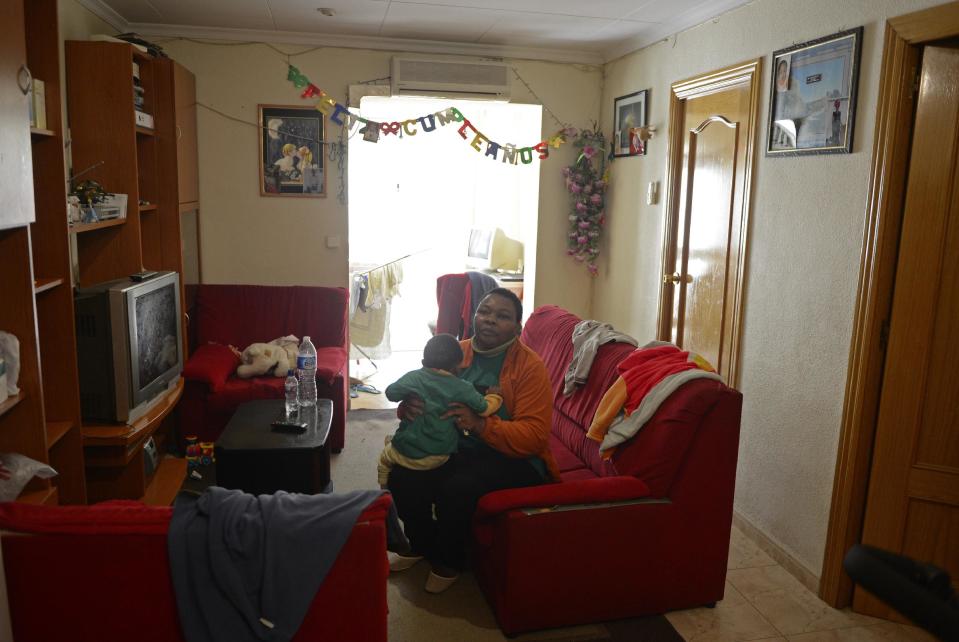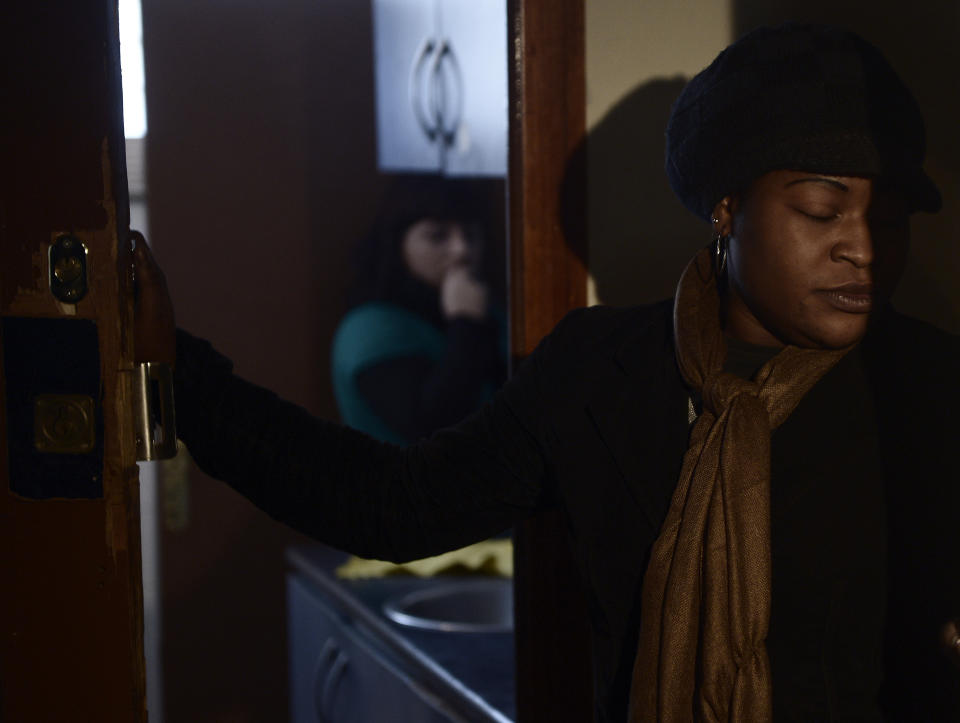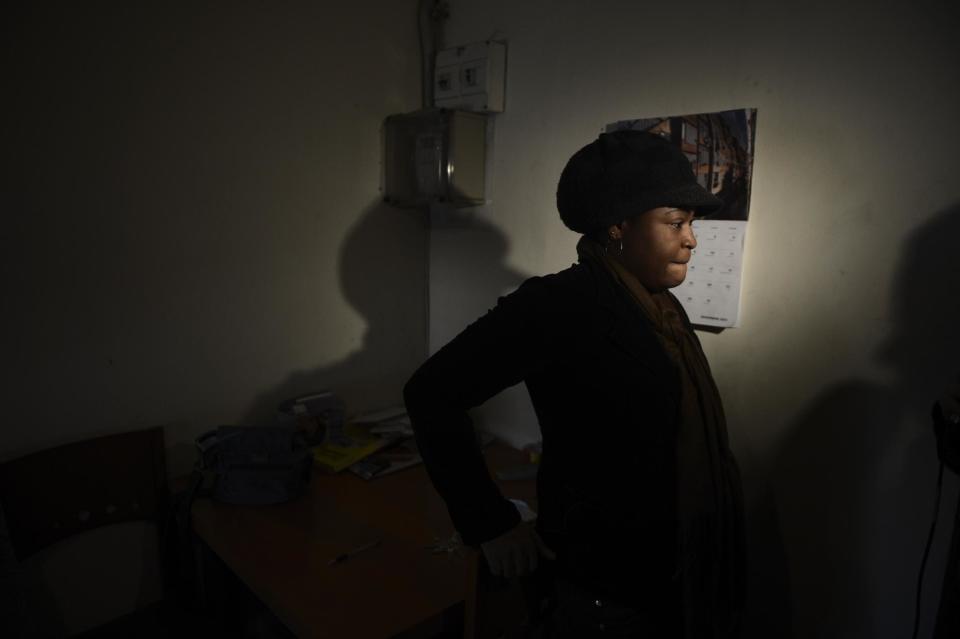Spain halts evictions for the needy after suicides
MADRID (AP) — Spain approved a two-year suspension of evictions Thursday for some needy homeowners unable to pay their mortgages, but activists said the government failed to address the larger issue of how those who give up their homes may still remain indebted, sometimes for the rest of their lives.
Evictions have suddenly became one of the most sensitive topics in Spain's financial drama, and government officials acted less than a week after a Spanish woman facing eviction killed herself by jumping from an apartment balcony. They are trying reverse or at least delay a trend that has seen more than 371,000 mortgage eviction orders issued since the financial crisis hit the country in 2008.
The government, which is still preparing a broader overhaul of the country's mortgage and property laws, said it hoped to shield those most in need by suspending mortgage payments for mortgage holders with annual income of €14,400 ($18,400) or less after taxes, or those with expired unemployment benefits.
"We must avoid families ending up in the street as a consequence of the crisis," Economy Minister Luis de Guindos told reporters. "What we're trying to do here is make sure nobody ends up without their house."
But the government tacked on conditions for those wanting an eviction suspension. To qualify, they must have more than three children, or have children under the age of three, or be elderly, or have disabled people in the household, or be single parents with two children, or be victims of domestic violence.
They can stay in their homes for two years without paying their mortgages, but it's unclear what will happen after that if they have still been unable to find work in a country where unemployment stands at 25 percent and is expected to rise significantly next year.
Part of the problem is that mortgage laws in Spain are particularly harsh. People unable to make payments who are evicted still remain liable to repay huge amounts because the value of their home or apartment has plunged during the crisis. Banks either sell the homes for much less than the original mortgage value or can't unload them, so the mortgage holders end up either owing the difference or paying back the whole loan. Their wages can be attached by the banks.
By comparison, most people in the United States who default give up their devalued homes to the banks and file for personal bankruptcy. That leaves their credit ruined but without continuing mortgage debt.
The Spanish government move "is a step forward, but we have to change the system and start all over," said Miguel Ordonez, a member of the Platform for Mortgage Victims who gathered Thursday with dozens of other activists in Barcelona to protest a planned eviction. Those who have their homes taken "still have their debt forever, and they can't start over in this economy. They can't find work, if they do, the bank takes a cut."
A judge at the last minute temporarily halted the eviction of unemployed construction worker Benedict Obi and his wife, Perpetua, from their small apartment but the Obis did not know whether the government measures approved hours later would apply to them or not.
"''It is not that I don't want to pay," Obi said. "I want to pay because I have a family, I have two children (I am) taking care of. I want to work to pay but I couldn't."
At another Barcelona eviction protest Thursday, single mother Cynthia Odigie got the news that her apartment would be repossessed but the bank that gave her the mortgage would let her rent a nearby apartment for €200 monthly so she would not be put out on the street with her son, her sister and her sister's two children. The sisters can only afford the apartment because they get €426 each in monthly welfare payments for those whose unemployment benefits have expired.
Odigie, who lost her factory job three years ago, doubted she will ever be able to pay the €126,000 ($160,700) she still owes on her mortgage.
"Economically, Spain is getting worse by the day, no one is doing anything about it," she said. "There are no jobs."
While Spain's mortgage default rate is relatively small at 3 percent, it stood at less than 1 percent in 2007 before the crisis hit. Now friends and family who used to help their hurting relatives when they couldn't make mortgage payments increasingly can't do so anymore. The Bank of Spain says there are now €19.1 billion ($24.4 billion) worth of mortgages under threat of not being paid, up from €4.1 billion ($5.2 billion) in 2007.
Public anger over evictions has been compounded because the government is negotiating billion-dollar bailouts for the same banks that are repossessing homes. In recent weeks Spain's General Council of the Judiciary, a police union and opposition parties have all demanded new legislation to end the widespread evictions.
Spanish banks have warned against enacting measures that could prompt mortgage holders to default on purpose because they feel protected. De Guindos doubted this would happen, and he did not give an estimate of how many people would benefit from the eviction suspensions.
He noted that while some people are losing their homes, Spain has 700,000 empty houses whose owners cannot find buyers, chiefly because banks are reluctant to give loans and people are afraid of buying into real estate after the crash.
Deputy Prime Minister Soraya Saenz de Santamaria said the government also passed legislation that will provide cheap rentals for those who have already lost their homes.
____
Associated Press writers Oleg Cetinic and Marta Ramoneda contributed from Barcelona.








